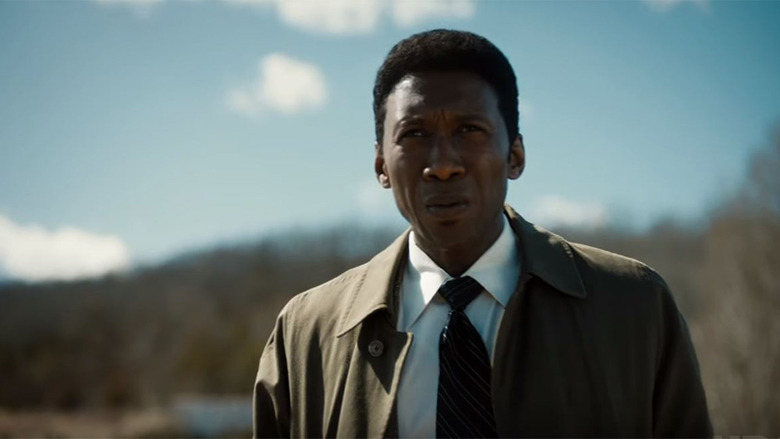'True Detective' Season 3 Is Going To Tap Into What Made Season 1 So Great
Maybe the third time really is the charm.
A pair of cops, plumbing the depths of the evil that men do amid the horror and strange beauty of the backwoods of the South. Dark, twisted evil. A grisly crime, regret that haunts old men, questionable motives — all of that and more, thankfully, seems like what's in store for us when True Detective returns in for its third season January 13th.
We should note that this is just one of several key dates on what is already proving to be an incredibly busy 2019 release calendar for HBO, with new installments of some of the hottest properties on television.
Part of what's making many people so eagerly anticipate season three of the gritty crime series from creator Nic Pizzolatto is that this next go-round seems to tap freely into what made the show's inaugural season so buzzy and fantastic. This time, the action is set in the Ozarks instead of the swampy bayous of Louisiana, and the new season will again likewise dip in and out of different time periods. We'll see, for example, an older Wayne Hays, played by Mahershala Ali, looking back on the central case this season involving two missing kids.
Speaking of Ali, in case you weren't aware of this and needed something else to whet your appetite — he actually fought not only to play this part, but to get it switched from being a white character as it was originally written. In a Variety interview, Ali explained how he fought to convince Pizzolatto that he was the one for the role.
"I could've played that second lead, that supporting career. But in my mind, I was like, 'I've done this my entire career though. I've never done that,'" Ali said. "At that time, I'm 43 years old. If it don't happen now, it really may not happen."
Per Variety: "To persuade Pizzolatto to cast him as the lead state detective, Ali texted him photos of his grandfather, who was a state police officer in real life. 'I was like, 'See, we existed in this space. In the '60s and the '70s. State police officers,' Ali recounts. 'I was like, 'I think your story would be served, I think the story would be improved in this case, if this lead character was black.' Ali also told Pizzolatto that with a black lead, the show would be able to explore the ways a black detective in 1980 Arkansas experienced racism."
